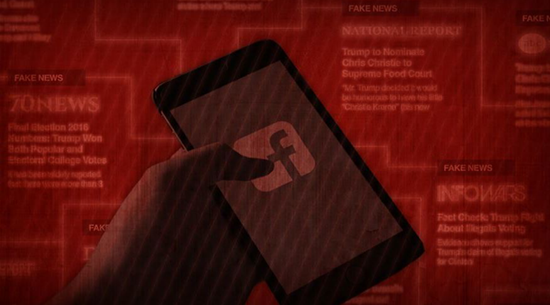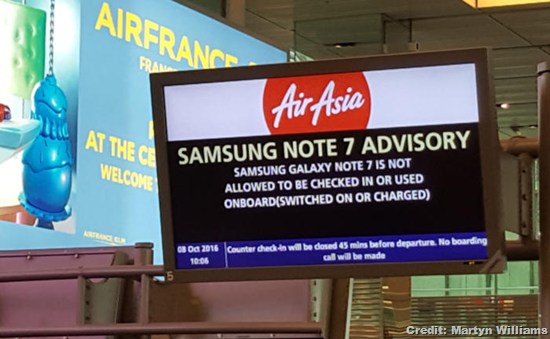
It's been a wild and weird year for tech: Here's a look at the stories that rocked the world of IT and beyond.
Evolution inevitably involves the creation of new problems, and the big tech stories of the year show that this goes for IT just like anything else. While the internet has brought the world closer together, it also paved the way for fake news and new forms of espionage. The rise of artificial intelligence (AI) has humans worried about being replaced. Chip makers are consolidating and scrambling to retool to meet the demands of virtual reality and the internet of things. And while Apple removed legacy ports on its new devices, a lot of users are grumbling about needing adapters for their favorite headphones and other peripherals. It's been a big year for trade-offs like this. Here are the IDG News Service's picks for the top 10 tech stories of the year.
1. Election of Trump brings fake news to the fore
The U.S. presidential election highlighted the internet's power to disseminate false information, fueling a fierce debate over the role of social networks in the media landscape and how Facebook, Google and Twitter should police "fake news." The election was the number one news topic on Facebook this year, and that "news" included blatantly false stories, including one that Hillary Clinton was running a child porn ring out of a Washington, D.C., pizza parlor. Google and Facebook have started blocking ads from sites that are known to promulgate disinformation, but they continue to struggle with the issue. Meanwhile, the world braces for the presidency of Tweeter-in-Chief Donald Trump, who claims he won the US popular vote "if you deduct the millions of people who voted illegally," possibly the biggest fake story of the year.
2. Mirai botnet pokes holes in IoT security
The internet of things (IoT) promises to revolutionize industry and enhance all sorts of web-connected services, but thanks to the Mirai botnet, it also represents a global security risk. Mirai was designed to scan the internet for devices like cameras and DVRs, then access and control them. In addition to other attacks, Mirai was responsible in September for a DDoS attack that overwhelmed cloud provider Akamai and brought down the website of security expert Brian Krebs. In October, it hit DNS (Domain Name System) service provider Dyn and disrupted dozens of major websites. Security experts are warning that more botnets like Mirai will appear unless the hardware industry moves away from default passwords.
3. Qualcomm buys NXP: The incredible shrinking chip industry
Mergers and acquisitions are a great window on how tech evolves, and this year's $38 billion deal for Qualcomm to buy NXP Semiconductors, announced in October, was a signpost pointing to how the chip industry is consolidating around IoT. Qualcomm wants to expand beyond a stagnating mobile phone industry, getting into NXP's market for chips for cars and IoT devices. SoftBank's July announcement that it would spend $32 billion to acquire ARM revealed its interest in cashing in on growing demand for processors and other technologies for the IoT and mobile markets.
4. Intel axes 12,000 as it breaks away from PCs
In another confirmation that we're living in a post-PC world, Intel announced in April that it would lay off 12,000 people, a whopping 11 percent of its worldwide workforce. The slowdown in PC shipments has hurt Intel, and the company needs to evolve to better serve the cloud and IoT. Data-center equipment will be Intel's growth area growing forward, along with the rapidly increasing number of sensors and connected devices.
5. HoloLens goes on sale: The VR future is here
The release of Microsoft's HoloLens Development Edition at the end of March, and the later release of the hardware to non-developers worldwide, marked a major milestone for the burgeoning markets for both virtual and augmented reality. Other bellwether VR events included the releases of the Oculus Rift and HTC Vive VR headsets. But it seems Microsoft is leading the charge to bring VR and AR to the masses, promising a Windows Holographic software update to Windows 10 next year, a move that could make it easier to blend physical and digital reality on any PC.
6. The DNC hack: Cyberespionage shapes an election
The revelation in June that hacking groups with likely Russian ties had hacked into the U.S. Democratic National Committee's computer network sent shockwaves through the global security community. Emails made public by WikiLeaks caused embarrassment among Democrats, led to the resignation of several DNC officials and allowed Hillary Clinton's opponents to portray her and the party's infighting in an unflattering light. The assessment of intelligence officials that Russian hackers intervened to sabotage Clinton's campaign, taking cyberespionage to a new level, has created a rift between Trump and the intelligence agencies, a blow to smooth U.S. intelligence operations.
7. Samsung's Note7 recall: Epic fail
When Samsung released the stylish Galaxy Note 7 in August, gushing reviewers found a lot to like. But soon enough, if you called it a "hot" product you'd be accused of committing a bad pun. Users started reporting problems with overheating and even outright fires. Samsung started recalling the device, and in October it finally threw in the towel, stopping production. The Note 7 recall has been both a public-relations and a financial debacle for Samsung, and one of the tech industry's epic fails of all time: The company has reported that third-quarter operating profit fell 95 percent, largely as a result of the Note 7 recall.
8. AlphaGo dominates, humans get worried
Google DeepMind's AlphaGo artificial-intelligence program overwhelmed 18-time world champion Go player Lee Se-dol in March, beating him 4 games to one in a Seoul match watched around the world. The AlphaGo program's ability to to learn from its experience apparently explained its unexpected and far-from-human moves. It was arguably the biggest AI v. man event since IBM's Deep Blue defeated Garry Kasparov in chess in 1997. As a wide variety of films and TV series around the world attest, concerns about AI have entered the zeitgeist, and no wonder: Milestones keep happening as AI is incorporated into everyday tech products. Google CEO Sundar Pichai said, "We've evolving form a mobile-first to an 'AI-first' world." That is exactly what has humans worried.
9. Apple kills headphone jack: Courage or arrogance?
When Apple announced in September it was eliminating the 3.5mm headphone jack in the iPhone 7 to pave the way to a wireless future, users around the world fumed. Getting rid of USB ports in the new Macbooks added insult to injury for many. Now, uncountable peripherals will no longer directly work with Apple devices. Apple's Phil Schiller said it took "courage" for Apple to move on from legacy ports, but many users said the change showed that Apple cares more about its own vision than about consumers.
10. Apple v. FBI: Encryption debate intensifies
In February, Apple was ordered by a federal judge in California to provide assistance to the Federal Bureau of Investigation to search a locked iPhone 5c that was used by Syed Rizwan Farook in the December 2015 attack in San Bernardino, California, that left more than a dozen people dead. The order crystallized a long-running debate about public access to encrypted devices, including whether tech companies should help law enforcement crack encrypted devices. In March, the judicial order was vacated after the FBI was able to hack the iPhone with the help of an unidentified third party. With law enforcement officials around the world dealing with an increasing number of encrypted devices in criminal cases, though, the debate over encryption is far from over.










No comments:
Post a Comment
Please adhere to proper blog etiquette when posting your comments. This blog owner will exercise his absolution discretion in allowing or rejecting any comments that are deemed seditious, defamatory, libelous, racist, vulgar, insulting, and other remarks that exhibit similar characteristics. If you insist on using anonymous comments, please write your name or other IDs at the end of your message.